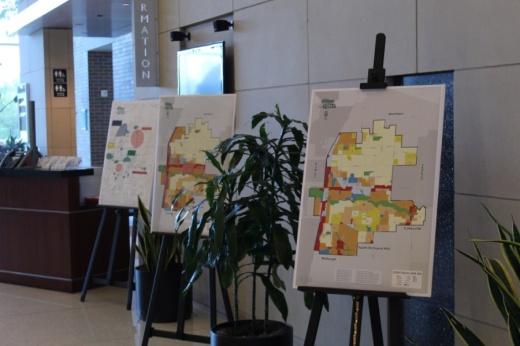The future land use plan is a set of recommendations that provide guidance for the city’s master plans. A land use designation is not the same as zoning, but the plan can be referenced when residents and developers submit requests to change zoning for a specific property. Plans to update the 1998 version were first introduced in 2018, but the city’s initial revision failed to pass City Council in 2019.
“I feel that this is the best vision that we have for right now,” Council Member Beckie Paquin said. “And I think that it is also very important that we continue to come back and reflect every five, six years to make sure that we don't find ourselves in the position that we are in today, where we are going back to a document that is so old that it is making it so difficult for us to move forward and be forward thinking.”
Cities normally update master plans such as this every five to 10 years, according to the draft of the plan that was approved April 20. The latest updates not only take into account changes that the city has undergone, but they also codify the city’s future growth.
Changes made in the 2021 version of the plan include updating the number and definition of land use categories and editing the map, which was last updated in 2017.
Previous residential land use categories only account for low-, medium- and high-density single-family categories. The new plan creates categories for patio homes, garden homes and townhomes. Those categories each require a smaller footprint than the now 8,000-square-foot minimum lot size for high-density residential areas. According to the plan, the goal of adding more categories is to incentivize diverse housing that can suit residents at every life stage, including young professionals and retirees.
The plan also updates and clarifies the definition of mixed use as it applies to zoning districts. Under the new definition, mixed-use developments must include three uses other than residential, including retail, office and entertainment. If zoned mixed use, a property is subject to higher standards for streets, open space and architecture.
“When I look at Keller coming into the 21st century, casting a vision for vibrant economic development, that's what I see in the FLUP,” Council Member Ross McMullin said. “We're not just talking about acreage and land use designations.”





